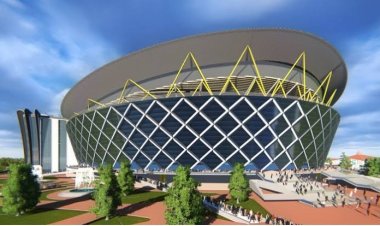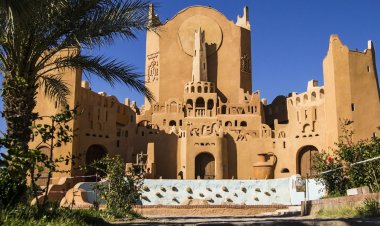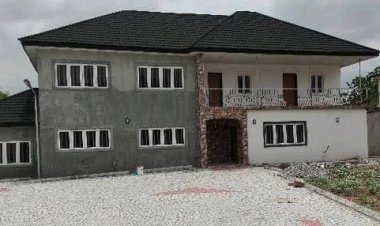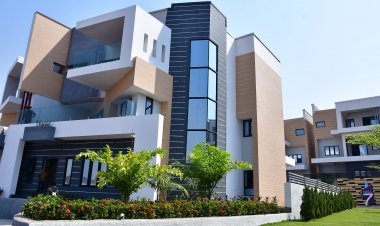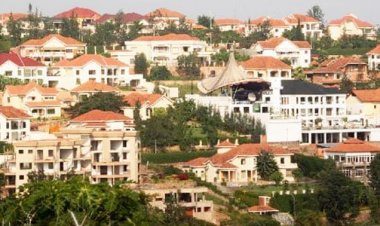Nigeria: Federal Govt's Properties Deteriorate as Housing Shortage Worsens
Abandoned federal government properties in Lagos, Nigeria have continued to rot away as the country's housing deficit worsens by the day.

Abandoned federal government properties in Lagos have continued to rot away as the country's housing deficit worsens by the day. The federal secretariat complex Ikoyi is one of them.
Other government properties in this category include the Nigerian External Telecommunications (NET) building on Marina Street, the Defence House (formerly the Independence Building), and the former Navy Headquarters building, all of which are located on Marina Street.
Despite the federal government's claim that there is no housing deficit in the country, the deficit has now reached 22 million units, according to Bismarck Rewane, who recently spoke at the June Breakfast Meeting which took place at Lagos Business School (LBS).
The minister of Works and Housing, Babatunde Fashola, insists that the deficit is primarily an urban issue, saying, "my understanding of the housing deficit is that it is largely an urban problem—people migrating to the cities."
If you travel to the countryside, you will see houses owned by city dwellers. These residences are secure. We can't talk about a housing shortage when there are so many empty houses."
The 12-story Federal Secretariat Complex in Ikoyi was one of the government properties sold into the property market by the Olusegun Obasanjo administration between 2003 and 2006. The complex, which was built in 1976, housed the entire Federal Civil Service but was decommissioned in 1991 after the federal capital was relocated from Lagos to Abuja.
The weed-infested complex, along with the other properties, is a testament to poor asset management in a country desperate for any available space to house its largely 'homeless' citizens.
Apart from residential housing opportunities, these properties could have been potential sources of revenue for the government if used properly. They are now depreciating and losing value as they sit empty and unused.
The value of the federal secretariat, including the land and physical structure, was revealed to be around N40 billion, and it could have been higher if the asset had been in constant use.
"That asset is standing on prime land; don't forget that it is in Ikoyi, which is one of the most expensive locations in Nigeria," said an estate surveyor and valuer, who requested anonymity, in an interview about the asset's value.
However, there has been an attempt to convert the complex into a residential building after it was sold in 2005 for N7 billion to Resort International Limited (RIL), which intended to redevelop the complex into apartments for 480 families.
With an average of five people per family (father, mother, two children, and one domestic servant), the complex could have housed approximately 2,400 people. However, the project was stalled.
Mikail Mumuni, Group Corporate Affairs Manager at RIL, explained in a recent media publication that shortly after they paid for the complex, the Lagos State Government intervened, claiming that the complex should have been sold to it and no one else, despite the fact that it did not participate in the bidding process.
"But the state government did not stop there. When RIL workers arrived on site to begin construction, it dispatched thugs to chase them away. In a clear display of bad faith, the state government also made other ridiculous demands, such as requiring RIL to obtain a new Certificate of Ownership (CofO) from it, regardless of the documents issued by the federal government on the property," he revealed.
The government, he added, also asked RIL to apply for the Lagos governor's consent on the property and a change of use, as well as to apply for a development permit from the state government.
RIL saw these demands as incompatible with the Development Lease Agreement (DLA) it signed in 2006 with the Federal Government, which granted it a 99-year lease to redevelop the secretariat complex into luxury apartments.
As a result, it took the Federal Government to an Arbitration Tribunal, claiming that it had suffered damages totaling N88 billion as a result of the government's breach of a DLA clause.
Though the Tribunal, chaired by architect Fred Adeniyi Coker and supported by a legal practitioner, Yusuf Alli, a Senior Advocate of Nigeria (SAN), and former Attorney General of the Federation, Abdullahi Ibrahim, ordered the FG to pay the company N54 billion in damages, it is unclear whether this ruling has been followed.
If you have a real estate press release or any other information that you would like featured on African Real Estate Blog Post do reach out to us via email at [email protected]








